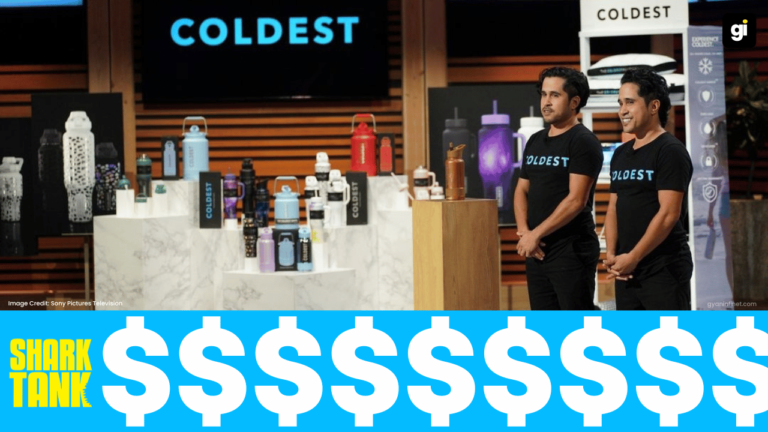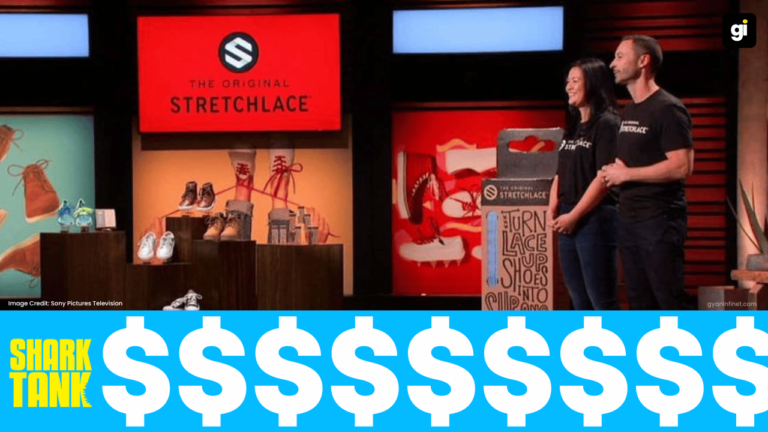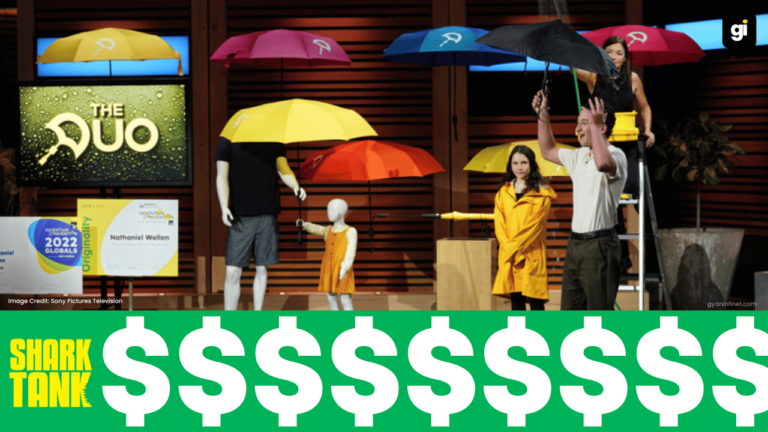What Happened To ZUP After Shark Tank?
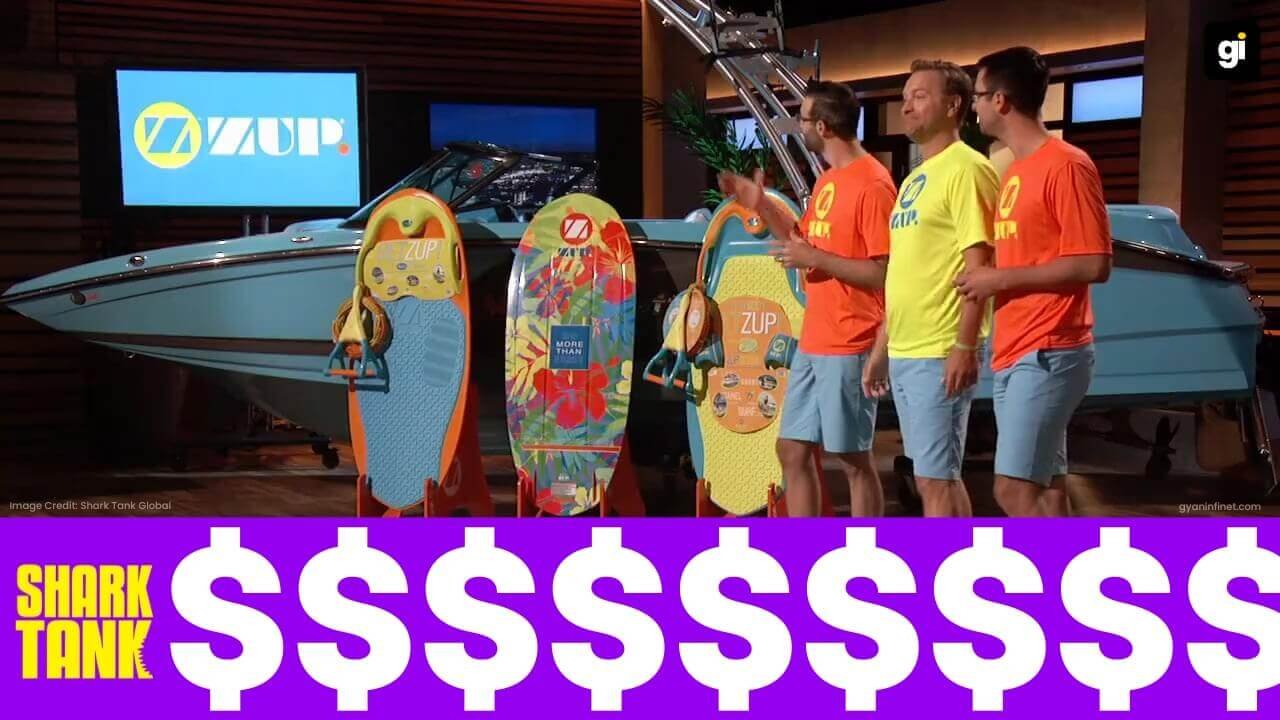
ZUP After Shark Tank Update: ZUP is a brand of water accessories that has developed a flexible waterboard for various outdoor activities. This waterboard may be utilized on water bodies such as lakes and ponds, as well as on sandy beaches.
As a consequence of this, the business appeared on the 9th season of “Shark Tank” in an effort to acquire $300,000 in return for 10% of the company’s ownership. Before we move on to the next ZUP information, let’s find out whether Nick Kierpiec, Glen Duff, and Scott Parks were successful in securing a contract.
What Is ZUP?
The Zup is an innovative new water activity that seamlessly combines various activities into one cohesive experience.
Notably, it is a versatile board that allows individuals to effortlessly transition between different water activities, such as water skiing, boogie boarding, or wakeboarding.
Additionally, the Zup board serves as a helpful tool for users to progress and improve their skills in each activity. In essence, it offers a comprehensive and adaptable water adventure for enthusiasts of all levels.
Who Is The Founder Of ZUP?
Nick Kierpiec, Glen Duff, and Scott Parks are the creators of Zup Board. In the year 2008, the three men founded the company out of their garages in Williamsburg, Virginia.
Their objective was to design a risk-free, relaxing, and simple product that would help clients become more skilled at water sports.
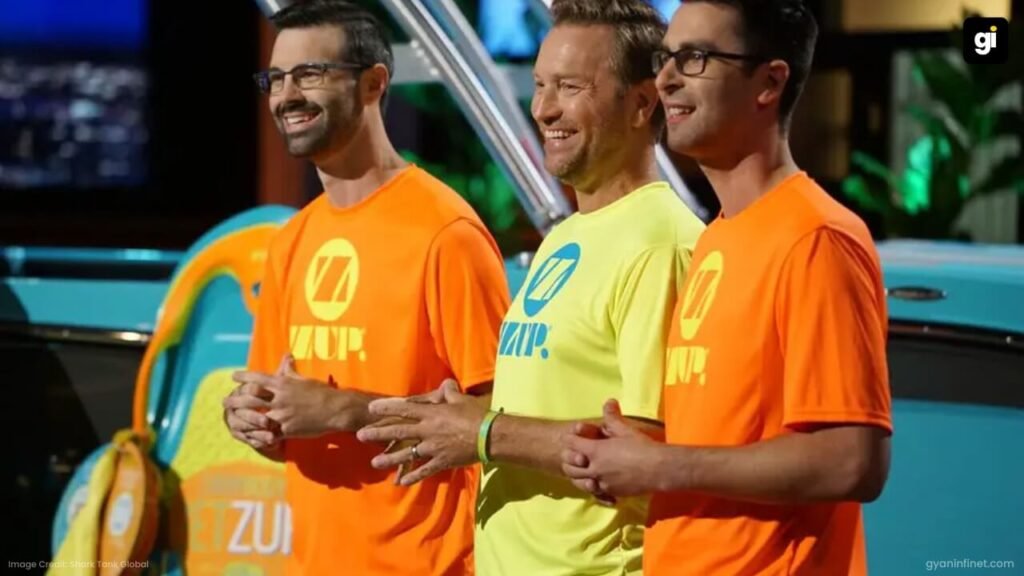
The genesis of Glenn’s boards was discussed. He made these for his girls to enjoy wakeboarding. The challenge that young people faced when wakeboarding was another reason that pushed him.
To make wakeboarding more accessible and enjoyable for children, Glenn worked with Tim to perfect their revolutionary ZUP boards. The end outcome is clear. The value of ZUP Boards reaches $1 million.
Pros:
- Super simple to use
- Suitable for a wide variety of users
- Durable
Cons:
- Weight limits on certain boards are rather low.
Know About the ZUP Shark Tank Update
They saw a remarkable 400% increase in website traffic and a significant boost in sales just after the first airing. Furthermore, the firm fielded numerous calls from interested investors, indicating a growing interest in their product.
However, about seven months after its initial airing, in August 2018, Zup faced an unexpected hurdle as it became embroiled in patent litigation.
Consequently, this legal challenge posed a significant setback for the company’s progress.
ZUP Shark Tank Update
| Company Name | ZUP |
| Founder | Nick Kierpiec, Glen Duff, and Scott Parks |
| Founded | 2008 |
| Product | Water Boards |
| Asked For | $300,000 for 10% equity |
| Final Deal | No deal |
| Shark | None |
| ZUP Shark Tank Episode | Season 9 Episode 17 |
| Air Date | January 14. |
| Business Status | In Business |
| Headquarters | Williamsburg, Virginia |
| ZUP Net Worth | $2.5 million lifetime and $1 million yearly |
| ZUP Instagram | View Profile |
| GO TO AMAZON | View Product |
Another Shark Tank Pitch:
- What Happened To Supply Co Razor After Shark Tank?
- What Happened To The Measuring Shovel After Shark Tank?
ZUP on Shark Tank Pitch
On episode number 911 of “Shark Tank,” Nick Kierpiec, Glen Duff, and Scott Parks gave an effective presentation about their towable water sports boards called Zup. They were seeking a $300,000 investment in exchange for 10% equity in their $3 million company.
The Sharks were captivated by their product and were eager to learn more about their sales performance. Zup didn’t disappoint as they revealed their impressive sales figures, indicating that they had generated $2.5 million and $1 million in annual sales through 180 US retailers and the popular online marketplace, Amazon.
Additionally, the company boasted an enviable profit margin of 54% on their range of products, which were priced between $279 and $400.
When the Sharks asked further questions and the Zup founders failed to answer, the proposal fell down.
Mark Cuban and Daymond John declined to buy it, while Kevin O’Leary worried about the company’s debt and financial matters.
Both Lori Greiner and Sara Blakely rejected investment offers.
The episode increased internet traffic and revenues for Zup, despite the failed deal. In addition, new investors reached out to them.
In August 2018, seven months after the episode aired, Zup was involved in a patent arbitration and failed to work with NASH.
As of February 2022, Zup had $3 million in yearly sales despite losing the lawsuit.
ZUP After Shark Tank
Despite their inability to secure a deal with the Sharks, ZUP continues to make significant strides. Moreover, they are actively taking orders for all the surfboards featured on their Shark Tank episode.
Furthermore, the company has expanded its product line to include branded merchandise such as t-shirts, water bottles, and tote bags, all available for purchase on their Facebook page.
In addition, their Facebook page serves as a platform for sharing recent updates.
Notably, they have recently announced their upcoming product, a portable blow-up board called RISE.
For those interested in acquiring this board at a more affordable price, it is advised to visit their website towards the end of the summer.
ZUP Net worth before Shark Tank
| ZUP Net worth before Shark Tank | 3 Million USD (business valuation) |
| ZUP Net worth between appearing and now 2020 | 1 Million USD |
| ZUP Net Worth | 3 Million USD |
Is ZUP Still In Business?
Indeed, ZUP has been persistently working towards success even after its appearance on Shark Tank. Notably, the company has experienced some favorable results on Amazon.
However, despite the numerous positive reviews and hundreds of 5-star evaluations for the quality of their water boards on the firm’s website, there remains a sense that the company may not be able to reach its full potential without the assistance of a shark.
Surprisingly, despite predictions from some of the sharks that the business would fail shortly after being on the show, it appears that their assessment is incorrect.
ZUP Competitors
TITO Wake Surfer and Twin Peaks Water Ski are two of Zup Board’s main competitors in the industry.
FAQs:
Williamsburg, Virginia’s Nick Kierpiec, Glen Duff, and Scott Parks founded ZUP.
During and after the pitch, the company was valued at $3 million.
Yes, ZUP is still in business.
Table of Contents



